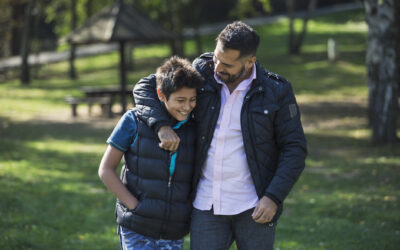Learning How to Embrace Our Aloneness as a Way to Manage Our Loneliness
Loneliness, a condition characterized by a feeling of isolation and lack of meaningful interpersonal connection, has become a worldwide epidemic. The American Psychiatric Association notes that loneliness afflicts 1 in 3 individuals in the USA.
Associated with a wide range of mental health and medical conditions such as cardiovascular disease, weakened immunity, cognitive decline, memory and focus impairment and a higher mortality rate, prolonged loneliness can be dangerous. Because loneliness has more to do with the meaningful quality rather than the quantity of relationships, it can be experienced despite being surrounded by multiple people or by people who report having “many friends.”
A survey in recent years by Cigna found that more than 70% of young adults and 50% of older adults report struggling with loneliness. There are many reasons for these numbers including the increase in time spent online, less reliance on in-person communication, decrease in communal engagement, decrease in the role of religion and spirituality and increased emphasis on self-reliance and individual achievement.
I believe that an additional significant explanation for the increased levels of loneliness, especially among young adults is the inability to being alone with oneself in a meaningful and healthy way or namely the inability to be with ourselves and appreciate, value and revel in our unique aloneness.
Aloneness as the Antidote to Loneliness
I believe that fostering and developing a healthy sense of aloneness can mitigate and inoculate individuals from experiencing toxic levels of loneliness while also contributing to their overall emotional and psychological growth.
While loneliness is associated with negative aspects of being alone, aloneness focuses on the beneficial aspects associated with a person’s ability to be with him/herself. Benefits such as the development of one’s self-reflective capacity, heightened creativity, autonomy, confidence and the ability to be mindfully present.
Developing a healthy sense of aloneness requires learning how to bring awareness to one’s inner world while minimizing the need to react or engage with external/internal distractions.
Learning to listen to, observe, notice and self-reflect upon our unique being is essential in order to cultivate a relationship with ourselves. However, many of us are unprepared, unknowing or simply averse to tuning into and checking in with ourselves and instead try to avoid being with ourselves at all costs.
Strategies to Develop a Healthy Sense of Aloneness
It is possible to develop practices and skills that can mitigate toxic loneliness and foster a healthy sense of aloneness. They require intention and a willingness to try something new, and in doing so, a chance to cultivate and strengthen the most vital relationship you will ever have – the relationship with yourself.
- Reframe alone time as healthy time: Shifting your perspective to view alone time as an opportunity to strengthen your relationship with yourself rather than as time that should be feared or avoided is the first more crucial step.
- Actively seek out planned alone time: If you are uncomfortable with being with yourself, it is important to actively seek planned alone time that has a definite beginning and end. Starting with small doses such as 15 or 30 minute intervals can be useful. Make a plan for yourself during this time such as meditating, taking a walk, hiking, painting or doodling, cooking and gardening or anything that you are curious about or you feel would be supportive for you.
- Know your shadow self: In spending time tuning into and being with ourselves, we may not always like what we find. Once we make room for, intentionally allow and take time to get to know the various parts of ourselves, they can seem less scary and help us feel more at home with ourselves. Seek out professional support if these parts feel perplexing, overwhelming or scary.
- Develop your ability to self-reflect: Taking time to self-reflect is similar to the same practice of making time to talk with your loved ones and checking in on how they’re feeling. Self-reflection activities such as journaling and meditation are helpful in developing your ability to communicate with yourself. Cultivating curiosity with yourself is essential to any path of self-growth and healing.
- Create a meaningful friendship list: In some instances, we can feel most lonely when we are embroiled in unhealthy relationships. It can be helpful to create a list of attributes that we value and seek in relationships and compare those attributes against the relationships we have in our lives. Relationships which feel unhealthy and toxic should be re-evaluated.
- Limit technological distractions: There are a multitude of never ending technological distractions literally at the tip of our fingers. Too much time spent on devices and social media can limit our ability to experience our aloneness in a healthy way. It is vital that we learn to develop habits to limit our technological distractions. It is strongly encouraged to commit to viewing any technological device, social media and/or news for no more than 2 hours daily.
- Time spent in nature: In my personal journey, the more time I spent in nature, the more grounded and at ease I felt. Walking with the breeze and within view of trees, flowers and bodies of water and different neighborhoods provided me with the ability to connect with something far greater than myself while also calming and soothing my nervous system. I find all the animals I encounter including deer, rabbits, birds and squirrels inspiring in how comfortable they are with their aloneness and sense of being, reminding me of what is possible.
Celebrate Time Alone with Yourself
Loneliness is a modern pandemic which is affecting more people each year. If people were taught that they can learn how to savor their time alone, instead of dreading their time alone, we may be able to experience reduced levels of loneliness and have a better chance to thrive. We can all benefit from learning to befriend our time alone with ourselves and view it as a growth promoting opportunity.
Resources:
American Psychiatric Association. May, 2023. New APA Poll: One in three Americans Feel lonely every week. https://www.psychiatry.org/news-room/news-releases/new-apa-poll-one-in-three-americans-feels-lonely-e#:~:text=The%20latest%20Healthy%20Minds%20Monthly,they%20are%20lon
The Cigna Group.December, 2021. The Loneliness Pandemic Persists: A Post Pandemic Look at the State of Loneliness among U.S Adults. https://newsroom.thecignagroup.com/loneliness-epidemic-persists-post-pandemic-look
Cooper, D. A. (1991). Silence, Simplicity and Solitude: A Complete Guide to Spiritual Retreat. Skylights Paths Publishing



